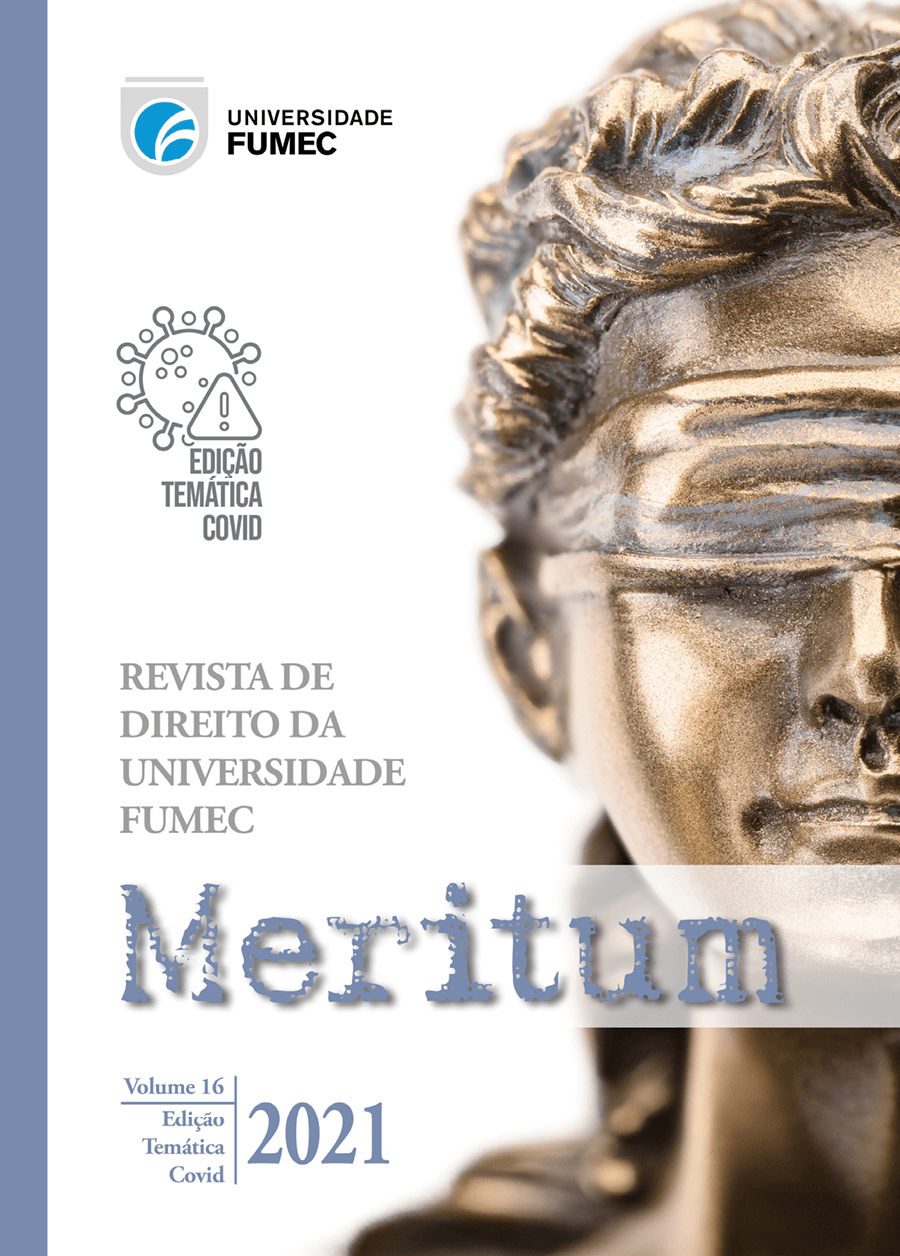THE EXISTENTIAL MINIMUM IN PROMOTING THE STATE OF SOCIAL WELFARE IN COVID-19 PANDEMIC TIMES
Abstract
This article aims to verify the feasibility of implementing a public policy, aimed at ensuring a minimum income, in order to safeguard the existential minimum, in times of the COVID-19 pandemic. For that, a bibliographical research is used, applying the deductive method, which is shown to be the most adequate to debug the proposed objective. Indeed, the study begins from the theory of the existential minimum and its relationship with the Brazilian Welfare State (general premise). Afterwards, the changes perpetrated by the COVID-19 pandemic in the Brazilian socioeconomic situation are discussed. Finally, it enters the object of the current article (minor premise), that is, the feasibility of implementing the coronovaucher to ensure a minimum income to the most needy, within the panorama of viral pandemic, and its economic effectiveness. Furthermore, Keynesian theories and the Economic Analysis of Law are used here as theoretical references. Finally, from the work carried out, it is possible to observe that public policy, in order to ensure a minimum income, is extremely important to protect the existential minimum, without prejudice to the maintenance of the consumer market, which avoids the intensification of the economic crisis process. Although apparently beneficial, it is concluded that such instrument, however, must be used properly so that the state action falls on those really in need, under penalty of frustrating the protection to the existential minimum. Thus, greater state control is needed, maximally, in the inspection of this type of public policy.
Downloads
Published
Issue
Section
License
Autores que publicam nesta revista concordam com os seguintes termos:
- Autores mantém os direitos autorais e concedem à revista o direito de primeira publicação, com o trabalho simultaneamente licenciado sob a Licença Creative Commons Attribution que permite o compartilhamento do trabalho com reconhecimento da autoria e publicação inicial nesta revista;
- Autores têm autorização para assumir contratos adicionais separadamente, para distribuição não-exclusiva da versão do trabalho publicada nesta revista (ex.: publicar em repositório institucional ou como capítulo de livro), com reconhecimento de autoria e publicação inicial nesta revista;
- Autores têm permissão e são estimulados a publicar e distribuir seu trabalho online (ex.: em repositórios institucionais ou na sua página pessoal) a qualquer ponto antes ou durante o processo editorial, já que isso pode gerar alterações produtivas, bem como aumentar o impacto e a citação do trabalho publicado (Veja O Efeito do Acesso Livre).






